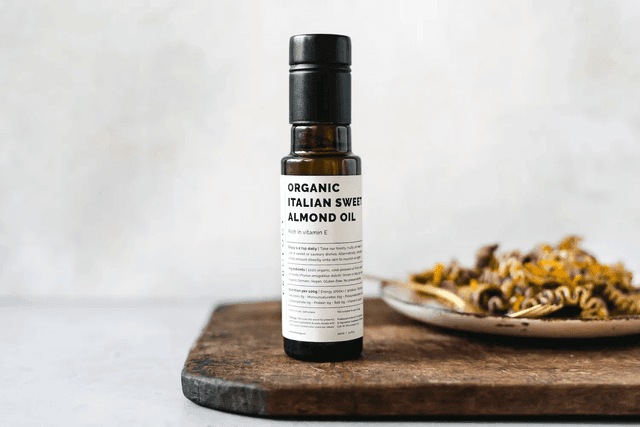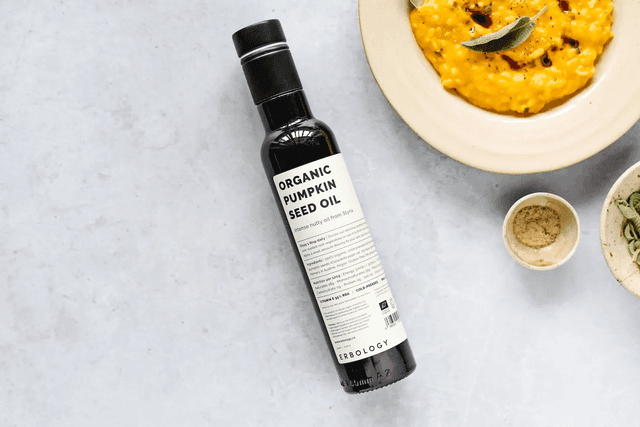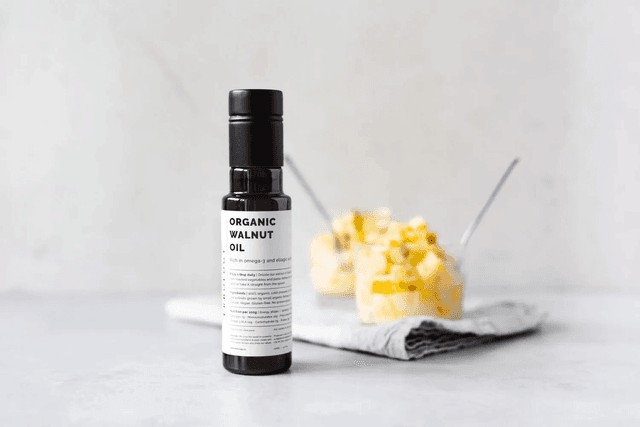03 Dec 2018
Almond oil benefits
Almond oil origins
The almond is thought to have originated in China, although some claim it comes from the Middle East. It's possible that traders moving along the famous Silk Road brought it to other countries in Europe and Asia. We do know that it was present in the Mediterranean and the Middle East before Christ; almonds were a favourite food of the Egyptian pharaohs. In the folklore of some Asian cultures, almonds are a charm against memory loss if you soak them in water before eating.
The almond tree flowers at the end of the winter, and its fruit is harvested twice a year. Standing at 20 to 30 feet tall, almond trees are giants, even if the almonds themselves are 'petite'!
In ancient Rome, almonds were called 'Greek nuts' because they came to Rome via that part of the world. Their flavour was so loved that sugared almonds were given to great men on special occasions. Thought to nourish fertility, friends and family would also shower happy new couples with almonds at Roman weddings. In Greece, people savoured them with honey, and the combination of honey and almonds remains a favourite to this day.
Long before Hollywood was born, and before Californian cuisine developed, El Camino Real (The Royal Road) extended north from San Diego to Sonoma by the Pacific Ocean. In the mid-1700s, Spanish priests, the Franciscan Padres, built grand missions along the road. Almond trees were cultivated outside these elegant buildings. These are the ancestors of today’s Californian almond trees, which yield 80% of the world’s almonds.
That love of almonds has continued into the present day. Almond milks, flours, and butters are staples in contemporary refrigerators. Almonds also feature in any number of treats and chocolate bars. We love them for their taste, texture and health benefits.
While we wouldn't presume to correct an artistic genius, we would advise you to ignore, just this once, the words of the French novelist Colette. “Don't eat too many almonds," she advised. "They add weight to the breasts.”
Bitter or sweet?
There are two varieties of almond oil – bitter and sweet – which come from different types of almond trees. Bitter almond oil, an essential oil, is ideal for scent. Meanwhile, sweet almond oil is a fixed oil; coconut oil and olive oil also belong to this group, which many use as carrier or base oils.
Sweet almond oil, or oil from Prunus amygdalus dulcis, is made from pressed almonds. Ayurvedic, Ancient Chinese, and Greco-Persian medicine hailed almond's health benefits; today, different cultures enjoy it in food or apply directly onto the skin and hair for deep nourishment.
Sweet almond oil also provides unsaturated fatty acids, including olein glyceride and linoleic acid. It also contains vitamin E and vitamin A. Quickly absorbed into the skin, this natural oil doesn't leave a greasy residue and is present in many cosmetics.
Almond oil benefits
There are many almond oil benefits. Firstly, sweet almond oil can help prevent damage caused by free radicals.
With the increasingly toxic environment of our world, it is ever more important to supply your skin with antioxidants to fight off free radicals. These tiny, unstable molecules contribute to overall ill health as well as weakening of the collagen. This protein acts as a pillow or cushion to plump and smooth the skin.(1)
Research shows that sweet almond oil can also help repair damage to your skin from UV radiation by reducing the harm done to your DNA by the sun.(2) One tablespoon of sweet almond oil a day equals about a quarter of your recommended daily intake of vitamin E.(3)
Working right in tandem with the Vitamin E in this oil are the monounsaturated fatty acids (MUFAs), which lock in precious moisture and help to keep your skin properly hydrated. MUFAs are also incredibly beneficial for heart health, because they elevate good cholesterol (HDL, high-density lipoproteins) and lower bad cholesterol (LDL, low-density lipoproteins). The fatty acids in sweet almond oil also make it anti-inflammatory and immunity-boosting.



